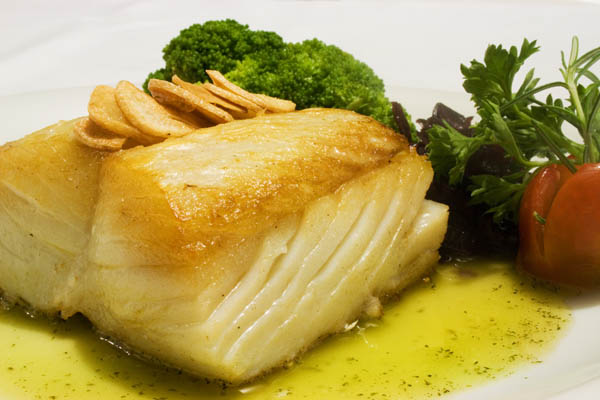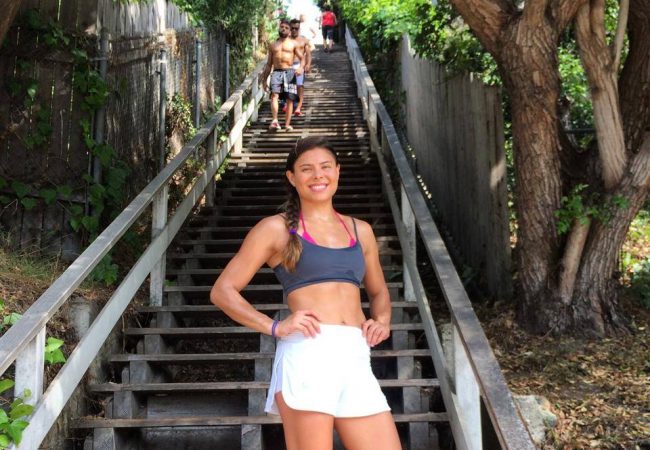
Nathalia Chantre. Clau Steinert
In order to have more expressive results and good performance in your Jiu-Jitsu training, it is essential to have a good diet. This is exactly what Nathiely de Jesus, the current absolute world champion of the IBJJF, has been doing for 3 years. The champion has had a change in eating habits since she began being monitored by Nathalia Chantre, a nutritionist certified by the International Sports Sciences Association who specializes in Jiu-Jitsu athletes.
Nathalia, also a Jiu-Jitsu practitioner, spoke of how nutrition can be an essential ally for the high-performance athlete.
“Some athletes have no idea what is behind nutrition,” she said. “They think that looking for a nutrition professional is related to weight loss or muscle mass gain, but it goes far beyond that. When an athlete has nutritional monitoring, in addition to improving eating habits, it also improves the functioning of the immune system, minimizes the risks of joint and muscle injuries, favors the adaptive response of training as well as the gain in sports performance. It also improves sleep and intestinal transit, improves muscle recovery between training sessions. All of these are factors that can take the athlete to the top of the podium or bring them the much desired victory.”
Nathiely, on February 26, 2021, made history by being the first woman to beat Gabi Garcia with and without the gi, a fact that seemed impossible for years. Nathiely’s victory began before she entered the arena at the Who’s Number One event in Austin, Texas, as Nathalia revealed.
“We knew that the F2W fight, for the title match against Gabi Garcia, was going to happen. And even before the contract was finalized, we started to improve body composition with nutritional adjustments. When the fight was scheduled for February 26, her body composition was already much better, which directly impacts the athlete’s performance. I always follow the training periodization, of both Jiu-Jitsu and physical training. In the second fight against Gabi, already in WNO, I counted on the help of the physical trainer Itallo Vilardo during Nathiely’s preparation.”
Nathalia added: “I knew that she would have volume and load of intense training, especially at the beginning of the training periodization. In the nutritional periodization, I prioritized foods that would help in the adaptive response of the training, as well as in the recovery between training sessions. Nathiely consumed a lot of cherry tart juice, grape juice, watermelon, green tea and berries. Creatine supplementation was also super important throughout training, as it improves exercise tolerance, muscle recovery and adaptive training response.”
Nathalia’s method includes making dietary plans in accordance with each athlete’s preferences. “A curious fact is that Nathi prefers to train fasting; she only consumes coffee,” said the doctor. “Thus the attention to the 24 hours before the morning training session doubles, because she needs to have energetic substrates to perform with excellence during the training. Therefore, the morning pre-workout meal will actually be her dinner from the night before, which will always be accompanied by good sources of carbohydrates. For Nathi’s dinner, I opted for rice, beans, potatoes and cassava, as they are foods with good carbohydrate sources. She also enjoys eating vegetables, feels very good eating these foods. She made a change in her eating habits. Before, for example, the champion was accustomed to consuming only foods rich in carbohydrate and protein in her main meals. This is a mistake made by many athletes. It was all possible because of her discipline, which made my job easier.”
The nutritionist went on to talk about the things to which she pays the most attention in the final stretch of the preparation of a BJJ athlete:
“I always keep an eye on hydration, which is one of the points that can compromise the athlete’s performance. So I always remind them that the minimum you should consume is: your weight x 35ml. We have to add all the water that was lost in the training, in addition to the mineral salts, and the isotonics come in post-workout as well. As my contact with the athlete is very close — we speak daily — the margin of error is almost nil. I’m always looking at the details and adjusting according to the athlete’s needs. I always say that supplementation is the icing on the cake; the basis has to be a well-structured eating plan. However, we are talking about a high-performance athlete, and sometimes supplementation is necessary. In the case of Nathiely, for the last fight, in addition to creatine and caffeine, we used beta alanine, krill oil, vitamin D3, COq10 and magnesium. She arrived in the pre-competitive phase without injuries, feeling strong and ready for the match. Everything went well, and the result you already know: a fight of the highest level, performing with excellence, and not only did she win the fight, but became the first athlete to beat Gabi Garcia with and without the gi.”
Nathalia, who has a postgraduate degree in nutrition, metabolism and physiology in sports, monitors renowned athletes such as Manuel Ribamar, Matheus Gabriel, Gabriel Sousa, Diego Ramalho, Thalison Soares, Paulo Miyao and João Miyao.




